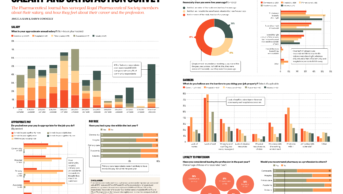
Alamy Stock Photo
Pharmacists working in the east of England area saw a 19% drop in their salaries on average this year, data from the Office for National Statistics (ONS) show.
The ONS figures, calculated as of April 2020, show significant variation in mean full-time earnings for pharmacists across Great Britain. Pharmacists in the East Midlands were the most well paid, earning an average annual wage of £48,704. The lowest salaries were seen in the North East, with full-time pharmacists in this region earning an average of £39,240.
The mean full-time wage for pharmacists in the UK was £43,260, an 0.8% increase on the 2018–2019 tax year. The data also show that full-time (FT) employed pharmacists in the UK work an average of 39.6 hours per week.
Pharmacists employed part-time earn a mean annual wage of £23,659 — up 5.3% since last year — for an average of 21.3 hours per week.
Of the eleven regions covered in the ONS data, eight saw an increase in mean annual wages compared with 2019; most notably in the East Midlands, which saw an increase of 37.1%. However, in 2019, this region had recorded a historic low of £35,520.
Of the three areas where mean annual wages had decreased, the largest change was in the east of England, which saw a percentage change of -19%: £41,513, compared to the £54,441 reported last year. This was despite pharmacists in this region working, on average, the longest hours in Great Britain, at a mean of 43.2 hours per week.
Nick Hunter, chief officer of Nottinghamshire, Rotherham and Doncaster local pharmaceutical committees, said that the large reported increase in annual wages on his patch — up from a significant low last year — could be down to “the huge recruitment of primary care network pharmacists forcing mainly hospital pharmacy colleagues to have to increase their salaries.
“Albeit anecdotal, my feeling is community pharmacy workforce salaries haven’t increased significantly for around five years due to the funding cuts in community pharmacy core work, and in fact longer than that; salaries were in some case higher in the Noughties, although perhaps with wider variances.”
The ONS data was gathered from a 1% sample of jobs taken from HM Revenue and Customs’ Pay As You Earn records. It did not break down the different settings in which pharmacists work.


